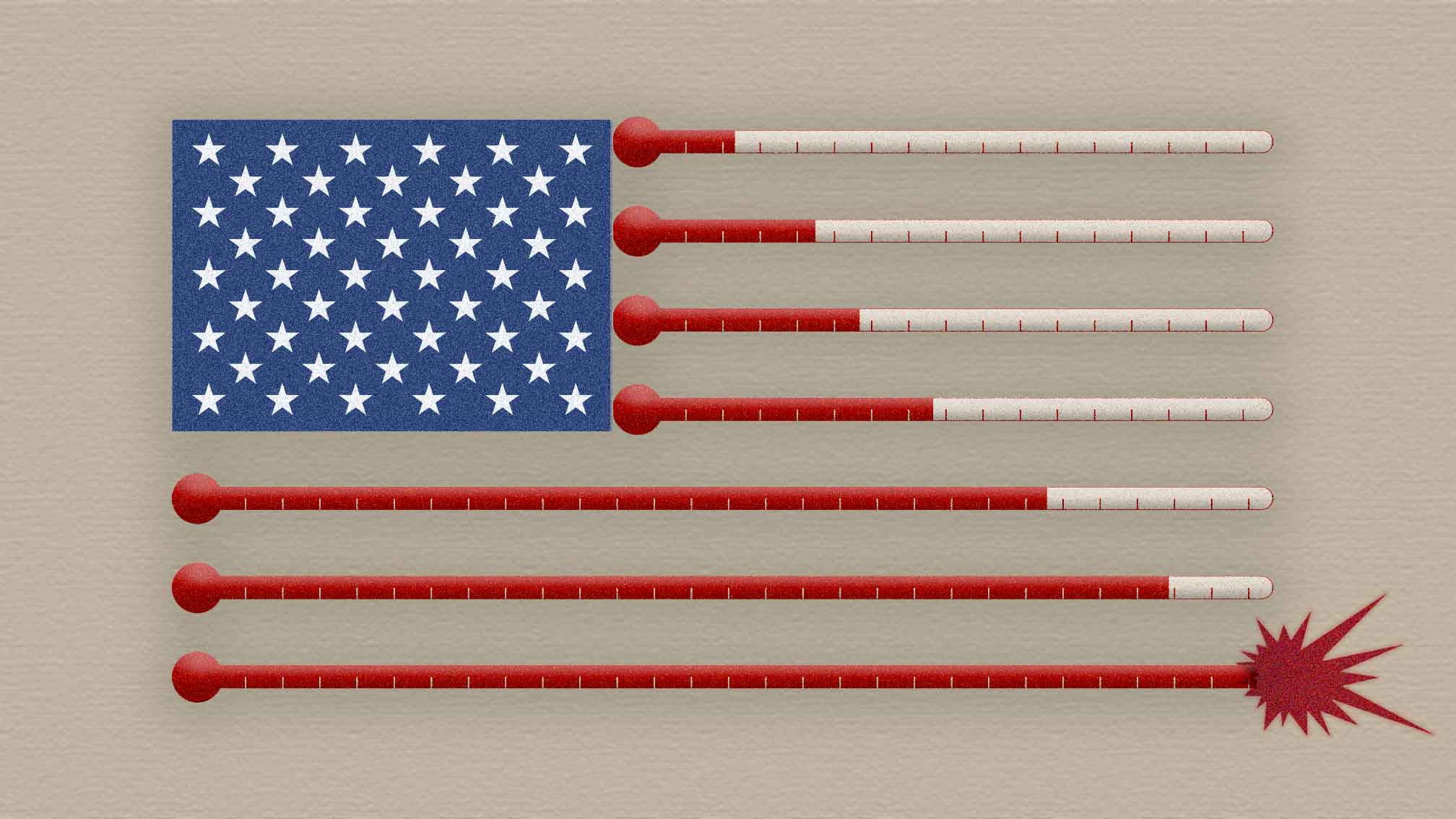Filing for bankruptcy this May? Ask these 5 questions first
There's no question that 2025 has been a tough year for many Americans financially. Between stubborn inflation, elevated interest rates and persistent debt burdens, a growing number of people are finding themselves at a financial crossroads. And for some, that crossroads includes the possibility of filing for bankruptcy.
As a result, personal bankruptcy inquiries surged nationwide in the first quarter of 2025 — reaching their highest point since early 2020. This spike is occurring in tandem with the third consecutive quarter of elevated consumer stress, painting a picture of just how financially strained many households are feeling right now.
But bankruptcy is a serious decision that comes with long-term consequences — and while it can offer a much-needed financial reset, it's not the right fit for everyone. So, if you're contemplating filing for bankruptcy this May, make sure to ask yourself a few key questions first.
Find out what debt relief options you should consider now.
5 questions to ask before filing for bankruptcy this May
Don't file for bankruptcy before you know the answers to these questions:
Have I explored all of my other debt relief options?
Given the serious financial consequences, bankruptcy should generally be viewed as a last resort after exploring alternatives. So, before making a decision, ask yourself whether you've genuinely investigated other potential solutions, such as:
- Debt consolidation loans that could lower your overall interest rates
- Negotiating with creditors for lump-sum settlements or modified payment plans
- Working with a credit counseling agency on a debt management plan
- Selling non-essential assets to pay down high-rate debt
- Seeking assistance from a credit card hardship program
Many creditors would rather work out another way for you to get relief than see you file for bankruptcy, as they typically recover less in bankruptcy proceedings. A qualified debt relief expert can help evaluate whether these alternatives might work in your specific situation before you pursue bankruptcy.
Chat with a debt relief expert and get help today.
What kind of debt do I have?
Not all debt can be wiped out by bankruptcy, and the type of debt you're carrying can heavily influence whether a bankruptcy filing will actually help you. For example, most credit card debt, medical bills, personal loans and utility arrears can be discharged in certain types of bankruptcy. However, student loans, back taxes, child support and secured debts like mortgages or car loans often aren't eligible for discharge, or come with conditions.
As a result, understanding your debt breakdown is critical. If the bulk of your debt consists of obligations that bankruptcy won't eliminate, you may end up starting the process without securing the relief you were hoping for.
Which type of bankruptcy is right for my situation?
Not all bankruptcies are created equal. The two most common types for individuals are Chapter 7 and Chapter 13, and they function quite differently. Understanding which chapter aligns with your financial situation, assets and goals is crucial before proceeding. Each has different eligibility requirements, timelines and impacts on your financial future.
Chapter 7 bankruptcy involves liquidating non-exempt assets to pay creditors and typically discharges most unsecured debts. This option works best for those with limited income and primarily unsecured debts like credit cards or medical bills.
Chapter 13 bankruptcy establishes a three- to five-year repayment plan that allows you to keep more assets while paying back a portion of your debts. This option is more appropriate if you have a steady income and want to protect assets like your home from foreclosure.
Do I qualify for the type of bankruptcy I need?
Bankruptcy laws include specific eligibility requirements that not everyone meets. For Chapter 7, you must pass a means test that compares your income to your state's median income for similar household sizes. If your income exceeds certain thresholds, you may be limited to Chapter 13. And, if you've received a bankruptcy discharge in the recent past (within the last 8 years for Chapter 7 or 6 years for Chapter 13), you may be ineligible to file again.
Other factors that could affect eligibility include:
- Previous bankruptcy dismissals
- Recent debt accumulation that appears to be in bad faith
- Failure to complete required credit counseling
- Incomplete or inaccurate financial disclosures
Consulting with a bankruptcy attorney before filing can help determine if you meet all eligibility requirements and identify potential complications specific to your case.
Am I prepared for the long-term consequences?
Bankruptcy provides immediate relief from collection activities through the automatic stay, but its effects linger long after discharge. A Chapter 7 bankruptcy remains on your credit report for 10 years, while Chapter 13 stays for 7 years. During this time, you may face:
- Difficulty obtaining new credit
- Higher interest rates on future loans
- Potential housing rental challenges
- Possible employment complications in certain sectors
- Higher insurance premiums
Consider whether the immediate benefits outweigh these long-term repercussions. For many, bankruptcy represents a necessary fresh start, but entering the process with eyes wide open to all consequences is essential.
The bottom line
With bankruptcy inquiries on the rise in 2025, it's clear that many Americans are feeling the pressure — but filing should come after careful thought and planning, not panic. After all, bankruptcy can be a lifesaver when you're overwhelmed by your debt, but it's not a good solution for every situation.
If you're seriously considering bankruptcy this May, take time to ask yourself the questions above. Doing so can help you better understand your situation, weigh the pros and cons and make a choice that sets you up for long-term financial recovery, not just short-term relief.






